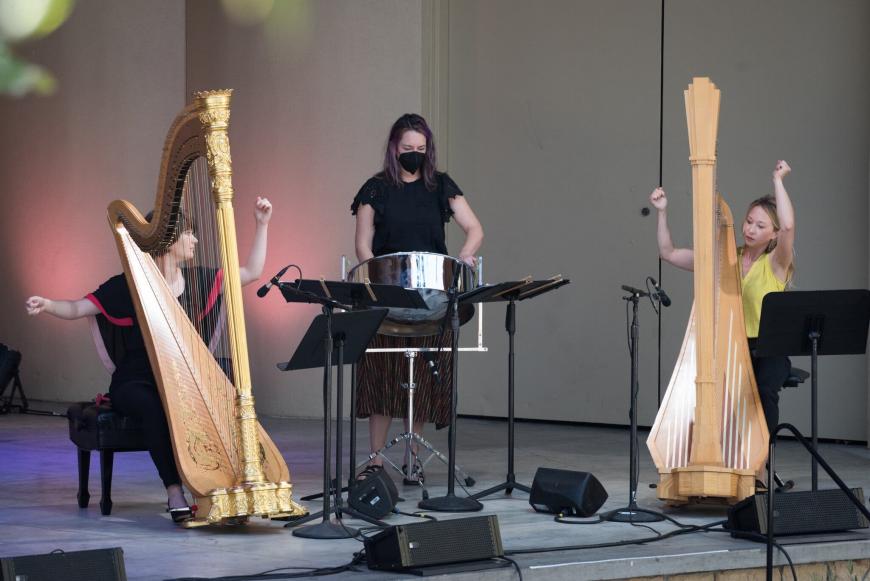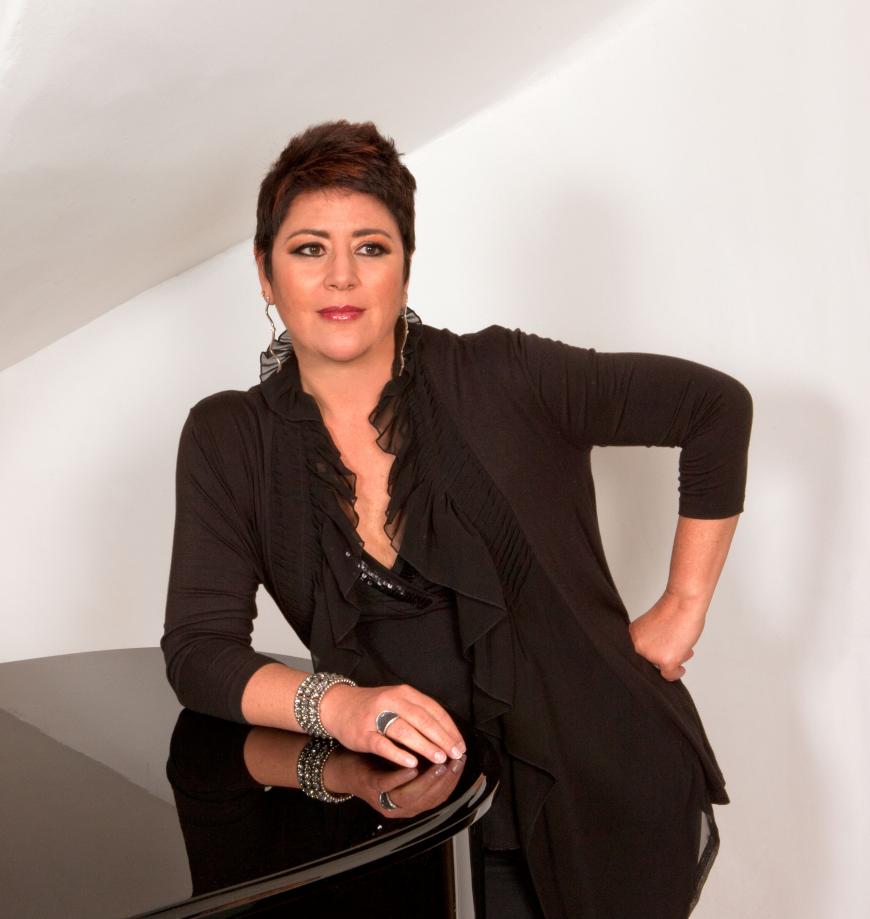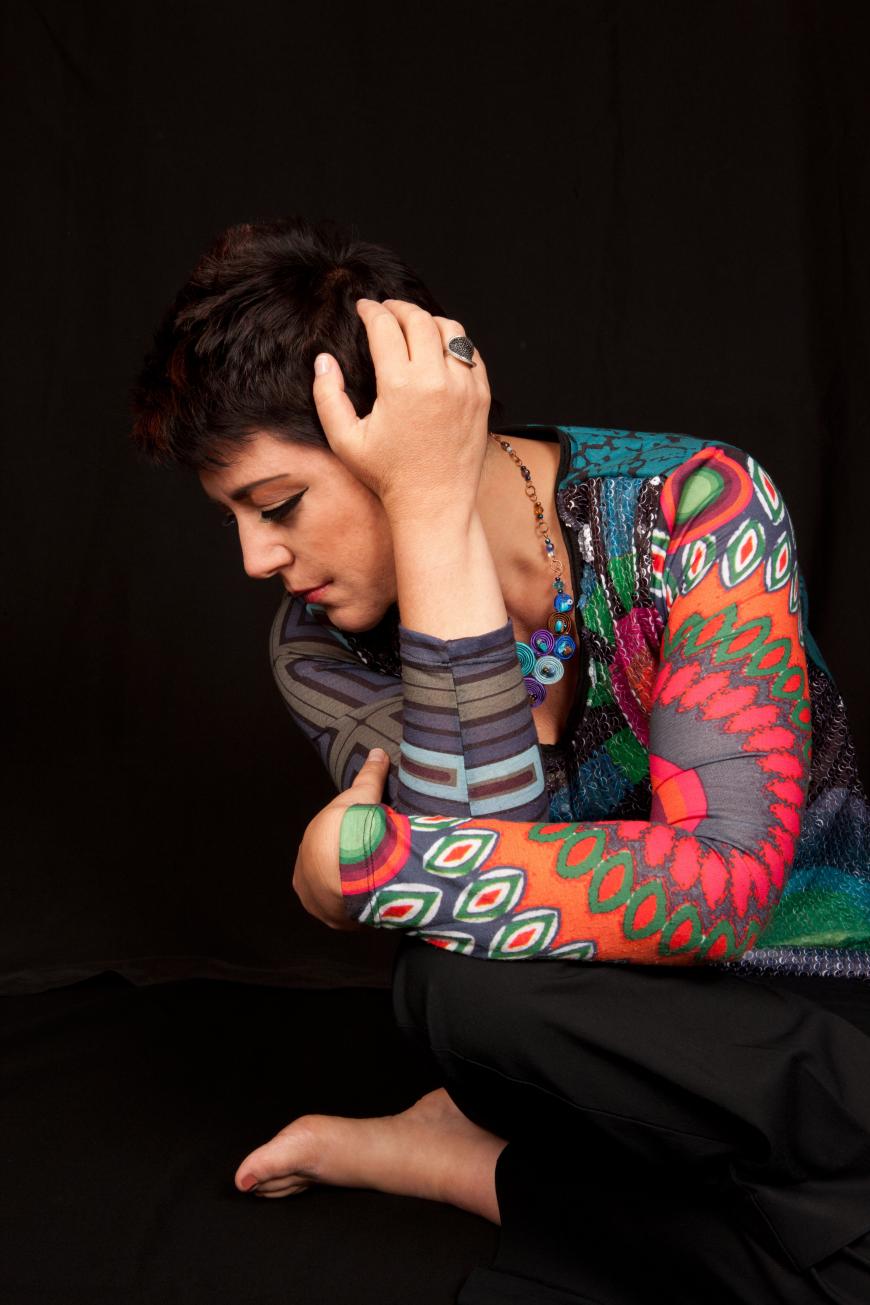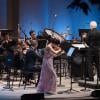
Birthdays offer a time for celebration and reflection. This was particularly true for the Ojai Music Festival, which lost an entire festival season to the pandemic and had it 75th birthday celebration postponed from June to Sept. 16–19.
“With such a history,” John Adams, 2021’s music director, wrote for the program, “what does one do to mark such a special year? We could have made a festival that celebrated Ojai’s long legacy, but instead we’ve chosen to look to the future.”
For Adams, who has often incorporated Hispanic characters and themes into his operas (Girls of the Golden West) and oratorios (El Niño and The Gospel According to the Other Mary), it was important that the festival interpolate a melodic Hispanic thread. For that purpose, he chose the Mexican composer Gabriela Ortiz.

Over the course of the festival, audiences experienced five of her compositions: Huitzitl for solo baroque flute (bravely performed by Emi Ferguson over the intrusion of a blaring security alarm); Alejandrías Sonoras, also for solo flute; Atlas-Pumas for violin and marimba; the diverse sonorities of Río de las Mariposas for dual harps (played by Emily Levin and Julie Smith Phillips), accompanied by Abby Savell on the steelpan. And Ortiz was also allotted the festival-ending spotlight for her revised edition of La calaca, performed by Los Angeles Chamber Orchestra, the piece’s swaying rhythms conducted by John Adams.
It was important for the festival to combine elements of history, Adams and festival Artistic Director Ara Guzelimian explained during a lengthy discussion panel, to recognize that we were gathering on ground held sacred to the Chumash Indians who were the original settlers of the valley, as well as the Spanish who came later.
Adams and Ortiz also confided that in their own compositional lives they found it necessary to break with the restrictive academic edicts of European modernism (which is a bit ironic, since that tradition has been a mainstay of the Ojai Festival experience from Igor Stravinsky to Pierre Boulez). Adams embraced his identity as a Yankee-turned-Californian; Ortiz, after studying in London, allowed herself the freedom to celebrate the Mexican folk heritage that played such an important role in her early life.
Throughout its illustrious history, the Ojai Music Festival has been known for a series of unpredictable, serendipitous musical experiences that become known as quintessential Ojai moments. One such moment stood out as a highlight of this year’s festival— an “Ojai Dawns” concert that took place at 8 a.m. on Sept. 18 at the Zalk Theatre of Besant Hill School.
Performed with the intimate theater’s stage doors open to reveal the early morning landscape of oaks and rolling hills beyond, the program was all Mexican composers, music by Ortiz, Javier Álvarez, and Georgina Derbez.
Born out of necessity, the concert had to be hastily assembled when the scheduled soloist, Spanish recorder virtuoso Anna Margules, was unable to obtain a visa to attend the festival. Working in tandem, Guzelimian and Ortiz cobbled together a program that would offer a bold and colorful statement about the diverse voices of contemporary Mexican composers.
“This concert is important to me because it speaks to the issue of diversity,” Ortiz said in an impromptu interview. “It’s urgent to see that it’s not only Europe that is the future of concert music. This is an opportunity to show that in Mexico we have really good composers. And not only in Mexico but throughout Latin America. I think having a Hispanic music director someday for the Ojai Music Festival would be a wonderful idea.”

At that point, into the lighted doorway stepped flutist Emi Ferguson to perform Ortiz’s four (partially improvised) movements, the music alternating between bright shafts of melodic light and windy, wispy breaths that seemed to mirror the sun slowly burning away the fog.
But it was what came next that was totally unexpected.
Percussionist Lynn Vartan appeared in the doorway aglow in a thousand-sequined jacket and with a pair of maracas in her hands. With the seductive sway of a dancer, she performed Álvarez’s Temazcal for maracas and electroacoustic sounds. Its rhythms pulsated, accentuated by Vartan’s gyrating hips and flashing eyes. It was a total delight, as intricate as it was enchanting.
The percussion was followed by Derbez’s Tonada de la luna llena (Song of the moon) for flute and electronics, here in its first live performance. Performed by Ferguson, the work (in two sections) combines a melodic song with pre-recorded and live electronics that blend and distort the playing of the soloist.
Ortiz’s Atlas-Pumas brought the concert to a close; its shifting melodies for violin (Shalini Vijayan) and marimba (Vartan) evoking a sonic walk through the streets of Guadalajara.
When I asked Ara Guzelimian about the need for the Ojai Music Festival to appoint its first Latino music director, he was rather crafty in his answer.
“I don’t want to give too much away,” he said with smile of contentment. “But, of course, I’m open to the idea.”




